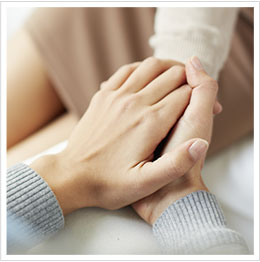About Eating Disorders


-
1.6 million people have a diagnosed eating disorder
-
Young people between the ages of 14 and 25 are most at risk
-
The average age of onset of Anorexia Nervosa is 16 - 17 yet the number of cases of children affected and cases of early onset continues to rise. The average age of onset of Bulimia Nervosa is 18 or 19 years.
-
Department of Health estimates 4 million people currently struggle
-
40% of people suffering with an eating disorder also self-harm
-
Anorexia is the leading cause of mental health related deaths
-
High mortality rate due to organ failure and suicide
- Of those surviving, 50% recover, whereas 30% improve and 20% remain chronically ill.
Eating disorders are complex psychological conditions that produce physical complications. There isn’t a simple explanation or a single cause. Research shows that eating disorders have a genetic predisposition and are triggered by the interplay of biological, social and emotional factors, such as stress, bereavement, family break-up, physical illness, bullying or even abuse.
Eating disorders usually start when someone who is already struggling with life, begins to believe that maybe their life would be better if they were thinner. Often this belief has its roots in low self-esteem and poor body confidence.
They believe that controlling their intake of food will help them to get on with people and feel less alone. For others there is something very powerful about feeling in control of everything – and their weight is one very clear indicator of that control. This belief can develop in someone who is a very high achiever and puts a lot of pressure on themselves in all areas of their life. Many people talk about feeling overwhelmed with hate for themselves when they are feeling low, or about hating how fat they feel they are. Of course, most are not actually overweight, and even though they may be slim already, they feel overweight and are devastated by it.
The next step in developing an eating disorder occurs when the person decides to do something to try to lose weight. Often their weight becomes the scapegoat for everything negative they are feeling and they cling to a hope that if they can lose some weight then they will not have to endure those painful feelings again. They start to follow very strict diets, aiming to drastically reduce what they eat. Some people may try to follow a diet plan, others may count calories and start to try to cut down as much as possible, while others may simply try to ‘eat healthily’ but take it too far. Often they start to put together a list of ‘forbidden’ foods – things that they aim to avoid at all costs and they feel they should never eat. These are often the very foods they love the most – chocolate, crisps, cake, cheese... so the diet that they aim to follow is usually very limited, very restricted, and much less than their body actually needs.
Others cannot keep up the strict ‘diet’ and when their control breaks down, will binge-eat and purge by being sick, taking laxatives or over-exercising.
Eating disorders in children
Sadly, eating disorders are also becoming more and more common in children. Anorexia nervosa in particular, can start in very young children, and some treatment centres in the UK now admit children as young as 7 years old. Bulimia and other eating disorders can also occur in younger children, although this is much less common than anorexia. Picking up eating disorders in such young children can be very difficult. Their lack of understanding of calories may lead them to eat foods that usually someone who was anorexic might refuse, such as chocolate and high calorie drinks, which can mean that it takes a long time for a diagnosis to be made. They might not admit to having a fear of putting on weight, often finding this very hard to describe. Some children do not lose weight, but instead simply fail to grow and put on weight as would be expected in a child of that age. Catching eating disorders early in this age group is essential. Young children can get very ill very quickly and the sooner they get treatment the better the chance of recovery.
Main points to watch in children and younger teenagers:
Failure to gain weight at a time of expected growth (10-14 years).
Sufferers may complain of stomach ache, nausea, constipation etc, but will not admit they are avoiding food.
Obsessive and anxious attitudes towards food. This may include unusual diets in younger children.
Over-exercising and even the inability to stay still when seated or even refusing to sit down.
Calorie counting: Many young children have no idea of the calorific value of food. This means they may not be consistent in eating only low calorie food that may make their eating disorder hard to spot.